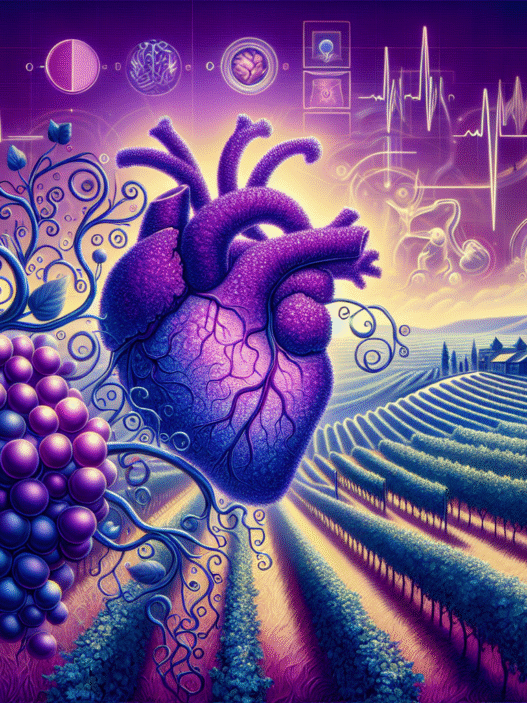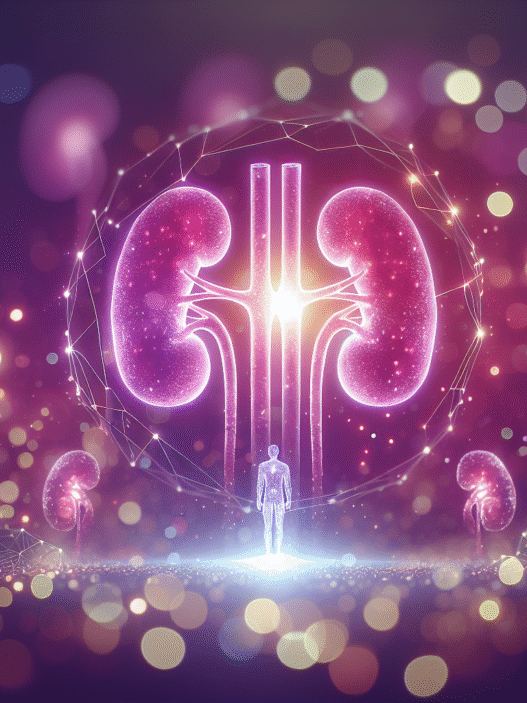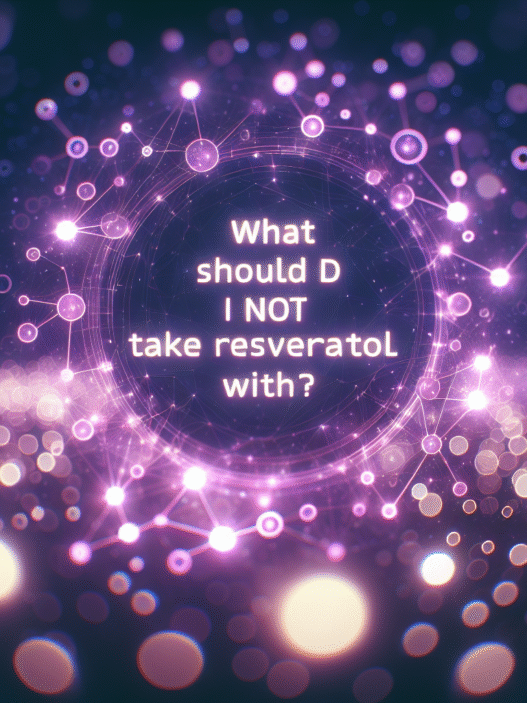The Promise of Resveratrol
What is Resveratrol?
Resveratrol is a naturally occurring polyphenol found primarily in certain plants. It is known for its antioxidant properties and has attracted attention in the wellness community for its potential anti-aging benefits. This compound is most commonly associated with red wine but is also present in other foods.
Sources of Resveratrol
Several dietary sources are rich in resveratrol, making it accessible for individuals looking to enhance their wellness routine. Below is a table highlighting key food sources along with their approximate resveratrol content.
| Food Source | Resveratrol Content (mg per 100g) |
|---|---|
| Red Grapes | 0.3 – 1.0 |
| Red Wine | 0.2 – 5.0 |
| Blueberries | 0.2 – 0.7 |
| Peanuts | 0.01 – 0.3 |
| Dark Chocolate | 0.3 – 1.0 |
Including a variety of these foods in one’s diet can help increase resveratrol intake. For more details on specific foods high in resveratrol, check out our article on resveratrol foods.
Mechanism of Action in Anti-Aging
Resveratrol works at a cellular level to provide anti-aging effects. It activates certain genes associated with longevity and helps defend cells against oxidative stress. By combating free radicals, resveratrol protects against cellular damage that often leads to aging-related diseases.
This compound also plays a role in modulating inflammation, which is a key factor in many chronic conditions. Research suggests that resveratrol may influence several biological pathways, including those related to cardiovascular health and cognition.
A deeper understanding of these mechanisms can be found in our articles on resveratrol health benefits and resveratrol for skin. Overall, resveratrol represents a promising avenue for those interested in enhancing their health and well-being as they age.
Benefits of Resveratrol for Anti-Aging
Resveratrol has gained recognition for its potential anti-aging properties. This compound offers a variety of health benefits that may contribute to a more youthful appearance and overall vitality.
Skin Health and Youthful Appearance
One of the most notable effects of resveratrol is its ability to enhance skin health. Studies indicate that resveratrol can help reduce the appearance of fine lines and wrinkles, promote skin elasticity, and improve overall complexion. This is achieved through its antioxidant properties, which combat oxidative stress and inflammation that lead to skin aging.
The following table summarizes some of the skin benefits associated with resveratrol:
| Benefit | Description |
|---|---|
| Reduces Wrinkles | Inhibits enzymes responsible for collagen breakdown |
| Improves Elasticity | Boosts collagen and elastin production |
| Protects from UV Damage | Shields skin from harmful UV rays |
| Enhances Skin Tone | Provides a more radiant and even skin complexion |
For further insights, visit our article on resveratrol for skin.
Cardiovascular Health
Resveratrol is linked to improved cardiovascular health, which may be crucial for anti-aging. Its ability to lower inflammation and oxidative stress can lead to better heart function and reduced risk of heart disease. Research suggests that resveratrol may improve blood flow and circulation, thus supporting overall heart health.
Here’s a look at how resveratrol impacts cardiovascular function:
| Benefit | Effect on Heart Health |
|---|---|
| Reduces Blood Pressure | Helps relax blood vessels |
| Lowers Cholesterol Levels | Supports healthy cholesterol levels |
| Prevents Blood Clots | May improve endothelial function |
For comprehensive details, explore our article on resveratrol for cholesterol and resveratrol for blood pressure.
Cognitive Function
Another critical aspect of resveratrol’s anti-aging benefits lies in its potential to enhance cognitive function. Research indicates that resveratrol may protect against neurodegenerative diseases, improve memory, and support brain health. Its effects on blood flow and antioxidant properties contribute to better cognitive performance, especially in aging populations.
The cognitive benefits of resveratrol include:
| Benefit | Impact on Cognitive Health |
|---|---|
| Enhances Memory | Supports neuroplasticity and cognitive function |
| Reduces Risk of Dementia | Protects brain cells from damage |
| Boosts Focus and Concentration | Improves blood flow to the brain |
For more detailed information on cognitive advantages, refer to our article on resveratrol for memory and resveratrol for brain health.
Resveratrol’s anti-aging benefits extend beyond just skin appearance, encompassing heart and brain health as well. Incorporating this powerful compound into a wellness routine may boost overall longevity and vitality.
Resveratrol and Longevity
As the fascination with anti-aging continues to grow, resveratrol has emerged as a prominent compound of interest concerning longevity. Research is increasingly indicating that this natural polyphenol may play a significant role in enhancing lifespan and promoting healthy aging.
Impact on Cellular Aging
Resveratrol is believed to positively influence cellular aging by promoting the activation of sirtuins, which are proteins that contribute to cellular regulation. Sirtuins are linked to various biological processes, including aging, inflammation, and stress resistance. Evidence suggests that resveratrol may help improve cellular repair mechanisms and protect against age-related cellular damage.
The table below summarizes key findings regarding the impact of resveratrol on cellular aging:
| Study Aspect | Observation |
|---|---|
| Sirtuin Activation | Increases sirtuin levels, contributing to better cellular repair |
| Cell Protection | Reduces oxidative stress and inflammatory responses |
| Senescence | Delays the onset of cellular senescence, leading to healthier cells |
Potential Influence on Longevity Pathways
In addition to its effects on cellular aging, resveratrol may also influence various longevity pathways. This compound affects several key biological mechanisms that have been associated with extended lifespan, including:
- Caloric Restriction Mimicry: Resveratrol appears to mimic the effects of caloric restriction, a well-documented method for promoting longevity in various organisms.
- Metabolic Regulation: It enhances insulin sensitivity, which may support better metabolic health as one ages.
- Cardiovascular Benefits: The compound is known for its positive effects on heart health, potentially reducing the risk of age-related cardiovascular diseases. For more details on these benefits, see our article on resveratrol benefits.
The following table highlights the longevity pathways influenced by resveratrol:
| Pathway | Potential Effect |
|---|---|
| Caloric Restriction Mimicry | May extend lifespan and improve healthspan |
| Metabolic Function | Enhances insulin sensitivity and glucose metabolism |
| Cardiovascular Health | Promotes heart health and reduces age-related risks |
Understanding the connection between resveratrol and longevity can provide valuable insights for individuals seeking to incorporate anti-aging strategies into their wellness routines. For more information on incorporating resveratrol, refer to our sections on resveratrol foods and resveratrol supplements.
Incorporating Resveratrol in Your Wellness Routine
Integrating resveratrol into a daily health regimen can enhance anti-aging efforts. Individuals seeking to harness the benefits of this compound can choose from a variety of dietary sources and supplements.
Dietary Sources of Resveratrol
Resveratrol can be found in several foods, making it accessible for those looking to include it in their diet. Below is a table outlining some common food sources of resveratrol along with their approximate content levels:
| Food Source | Resveratrol Content (mg per 100g) |
|---|---|
| Red Wine | 0.3 – 1.2 |
| Grapes (Red) | 0.5 – 2.0 |
| Blueberries | 0.2 – 0.5 |
| Peanuts | 0.01 – 0.2 |
| Dark Chocolate | 0.2 – 0.5 |
| Mulberries | 0.3 – 0.5 |
Incorporating these foods into daily meals may contribute to the desired health benefits. For a deeper dive into the nutritional advantages of resveratrol, check out our article on resveratrol benefits.
Supplements and Dosage Guidelines
For those who find it challenging to acquire sufficient resveratrol from food, supplements are an alternative. When considering supplementation, it’s essential to adhere to recommended dosages to optimize safety and effectiveness.
| Supplement Form | Typical Dosage (mg per day) |
|---|---|
| Resveratrol Capsules | 100 – 500 |
| Resveratrol Tablets | 100 – 500 |
| Resveratrol Powder | 250 – 1000 |
It’s advisable to start at the lower end of the dosage range and gradually adjust based on individual tolerance and health goals. To ensure safe usage, individuals should consult their healthcare provider, especially if taking medications or experiencing health concerns. For more information on potential side effects of supplementation, refer to our article on resveratrol side effects.
Incorporating resveratrol through dietary sources and supplements can enhance overall wellness and support anti-aging efforts. To learn more about resveratrol’s wide-ranging benefits, explore our insights on resveratrol health benefits.
Considerations and Precautions
While resveratrol presents promising benefits in the field of anti-aging, it is essential for individuals to consider certain precautions before incorporating it into their wellness routine.
Interactions with Medications
Resveratrol may interact with various medications, potentially altering their effects. It is particularly important for those taking blood thinners, anti-inflammatory drugs, or medications for high blood pressure. A summary of common medication interactions with resveratrol is provided below.
| Medication Type | Potential Interaction |
|---|---|
| Blood Thinners | Resveratrol may enhance the effects, increasing the risk of bleeding. |
| Non-Steroidal Anti-Inflammatory Drugs (NSAIDs) | May increase the risk of gastrointestinal issues. |
| Antihypertensive Drugs | Can interact, leading to fluctuations in blood pressure. |
It is advisable to consult with a healthcare provider regarding any potential interactions, especially for those already on a medication regimen.
Potential Side Effects
Although many individuals tolerate resveratrol well, some may experience side effects. Commonly reported side effects include:
| Side Effect | Description |
|---|---|
| Gastrointestinal Discomfort | Can include symptoms like diarrhea or stomach upset. |
| Allergic Reactions | Rarely, it may cause rashes or other allergic responses. |
| Hormonal Effects | May influence estrogen levels, raising caution for those with hormone-related health issues. |
For a comprehensive overview of potential adverse reactions, readers can refer to our article on resveratrol side effects.
Consulting a Health Professional
Individuals interested in adding resveratrol to their routine should consider consulting with a healthcare professional. This is particularly important for:
- Individuals with existing health conditions
- Those taking prescription medications
- Anyone considering high-dose resveratrol supplements
A healthcare provider can offer personalized advice and help determine the most appropriate and safe dosage. For information on recommended dosages, see our article on resveratrol dosage.
Understanding these considerations and precautions helps individuals make informed decisions when exploring the use of resveratrol for anti-aging benefits.
The Future of Resveratrol Research
Research on resveratrol has garnered significant interest in recent years, particularly concerning its potential anti-aging properties and overall wellness benefits. This section examines current studies and findings, as well as the exciting future of resveratrol research.
Current Studies and Findings
Recent studies have explored various aspects of resveratrol’s effects, particularly its impact on aging at the cellular level and its overall health benefits. Research indicates that resveratrol may activate longevity genes and enhance cellular health. Below is a summary of notable findings regarding resveratrol:
| Study Focus | Key Findings |
|---|---|
| Cellular Aging | Resveratrol may activate sirtuins, proteins that play a role in cellular repair and longevity. |
| Skin Benefits | Research indicates that resveratrol could improve skin elasticity and hydration, reducing signs of aging. For more details, see resveratrol for skin. |
| Cardiovascular Health | Some studies suggest that resveratrol may lower cholesterol levels and promote heart health, with potential benefits for blood pressure and overall cardiovascular function. For more information, see resveratrol for cholesterol and resveratrol for blood pressure. |
| Cognitive Function | Resveratrol has shown promise in improving memory and cognitive health, potentially influencing conditions related to aging. Further insights can be found in our article on resveratrol for memory. |
Exciting Potential for Anti-Aging and Longevity
The ongoing exploration of resveratrol’s mechanisms offers hope for enhancing longevity and healthy aging. Preliminary results suggest that it may influence several longevity pathways, including:
- Oxidative Stress Reduction: Resveratrol has antioxidant properties that help neutralize free radicals, thereby protecting cells from oxidative damage.
- Inflammation Modulation: Studies indicate resveratrol may reduce inflammation, a key factor in many age-related conditions. For further reading, refer to resveratrol for inflammation.
- Metabolic Effects: Insights into how resveratrol may aid metabolism hint at its potential role in weight management and energy levels, relevant for those looking to maintain vitality as they age; learn more in resveratrol for metabolism.
As research into resveratrol continues to develop, it will further elucidate the role of this compound in anti-aging and overall health maintenance. Continued investigations may lead to new applications and recommendations for incorporating resveratrol into wellness routines. For a deeper dive into the benefits and sources of resveratrol, check out resveratrol sources and resveratrol health benefits.





















